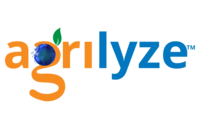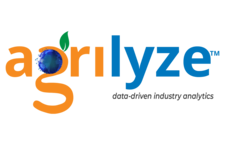Mitigate our environmental impact by ensuring visibility of farm management practices Determine better ways to utilize manure and be better prepared to meet guidelines Grow crops more efficiently as the soil is optimized and monitored Utilize provincial guidelines and documents to ensure end-to-end transparency BC has many vulnerable aquifers that we use for drinking water. An aquifer is where water is held underneath the ground surface in the cracks and spaces between rock or sand and gravel. Rain and snowmelt recharge or refill the aquifer by seeping down through the soil and becoming groundwater. Water is filtered and cleaned as it flows through the soil and sediments. Of course, deeper soil/sediment provides better filtration. Among other factors, how quickly water gets into the ground influences how vulnerable the groundwater is to contamination. Contaminants on the ground surface like oil, pesticides, fertilizer, pet/animal waste, paint, antifreeze, etc. can be picked up by the rainwater as it runs-off paved surfaces, lawns, and fields. This is how water can become polluted on its journey into the aquifer. Soil & water testing for Nitrogen, Phosphorous, and Potassium (NPK) level gives farmers a better understanding of what nutrients are staying on their fields for use in their crops and what runs off fields and into drainage ditches and aquifers. As too much NPK (manure/fertilizer) can create problems like algae bloom on the surface or drinking water quality issues in the aquifers, Agrilyze provides farmers with the ability to establish a base level to track and understand what contaminants are before they end up in the water. Agrilyze can monitor potential problems while tracking data on various water bodies, a much-needed resource to maximize farm potential. Farmers have access to provincial guidelines and can access documents, track soil test results, and see values mapped on the farm. By monitoring this information, farmers have guidance on the impact of their particular processes. The goal is to start tracking the information that we have about the areas at risk and the data of what is happening on a specific farm to determine better ways to utilize manure and minimize any negative impacts on the environment. If NPK is being used appropriately, crops will grow more efficiently, so the soil is optimized, and farms can become more profitable. As of spring 2019, the province of BC has instituted a new Code of Practice for Agricultural Environment Management, requiring a basic protection level for all agricultural operations. Agricultural operations in high-risk areas, such as vulnerable aquifer recharge areas and phosphorus-affected areas, may need to have and implement a Nutrient Management Plan if specific criteria set out in the Code of Practice for Agricultural Environmental Management are met. Water Contamination Solutions
Agrilyze helps farmers test, track, and identify the risk of water contamination to stay compliant to regulations.
Manage Compliance
Reduce Risk Exposure
Promote Profitability
Meet
Standards What is a Vulnerable Aquifer?


Identify Water Contaminants


Comply with AEM Code


